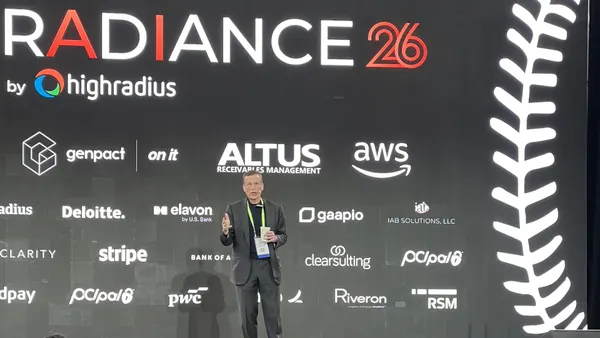Having the government as a customer offers several advantages such as facing lower demand uncertainty and having fewer covenants in loan contracts. However, doing business with the government has its challenges as well.
Unlike other firms, government contractors must comply with additional rules and regulations (e.g., the Cost Accounting Standards, the Federal Acquisition Regulation, etc.). Hence, they need a knowledgeable and trusted auditor that can help ensure all the accounting and reporting requirements are met. The findings of my recent study suggest that an industry-government specialist auditor may be the right choice for government contractors.
Managing Audit Risk
Audit risk in the case of government contractors should not be underestimated. The U.S. government has the right to audit its contractors and penalize them (and their auditors) if the contractor knowingly or mistakenly overcharges for its products and services provided to the government (e.g., improperly calculating and allocating overhead costs). For instance, in 2021, the government obtained more than $5.6 billion from cases involving false and fraudulent claims submitted by its contractors.

Ahmet Kurt
To understand how auditors can help government contractors, I analyzed 485 publicly traded U.S. firms with government customers for the period 2004-2019. I identified these firms through their segment disclosures per SFAS 131, which requires firms to disclose any major customers that account for 10% or more of their revenues (I refer to firms with major government customers as government contractors).
In 2021, the government obtained more than $5.6 billion from cases involving false and fraudulent claims submitted by its contractors.
I matched each government contractor in the data set with a control firm from the same industry with comparable characteristics (e.g., size, age, financial leverage, etc.), resulting in a balanced sample of government contractors and non-contractors. This research design allows for an apples-to-apples comparison.
The results show that government contractors use 9.7% more idiosyncratic risk words in their annual reports (e.g., cost control, internal controls, systems, shortages, etc.) and pay 6.9% higher audit fees than the control group.
What is a Specialist Auditor?
Can specialist auditors help mitigate the perceived audit risk and improve audit outcomes? Prior research suggests that compared with non-specialist auditors, specialist auditors typically deliver higher quality audits because they have greater knowledge about accounting and reporting practices used in their clients’ industry.
There are different ways to define specialist auditors. A commonly used definition focuses on industry expertise measured at the auditor office level. If an audit office has greater than 50% market share of the audit fees paid by industry peers in the same city (i.e., core-based statistical area), the audit office is deemed a city-industry specialist.
City-industry specialists are preferred by government contractors, which are 20% more likely to employ them as compared to non-contractors. Despite this preference, employing a city-industry specialist does not appear to yield audit cost-efficiency or quality benefits for government contractors.
Regardless of having a city-industry specialist or a non-specialist, audit fees paid by government contractors increase with the percentage of sales made to government customers. That is, all else equal, city-industry specialists (and non-specialists) charge higher fees to clients that derive a greater portion of their revenues from government contracts.
Also, from an audit quality perspective, city-industry specialists do not seem to do a better job than non-specialists. The likelihood of a government contractor having a revenue- or expense-related restatement is not reduced when a city-industry specialist (vs. a non-specialist) is employed.
These conclusions do not change when specialist auditors are defined at the national level (rather than the office level) or when a joint national-city industry specialist auditor definition is used.
Do You Need an Industry-Government Specialist Auditor?
As an alternative to traditional specialist auditors, I analyzed industry-government specialist auditors (a definition that is new to the literature). While some audit firms such as Ernst & Young and BDO make claims regarding their expertise in government contract services and how this expertise might benefit their clients, there is no systematic evidence on this matter.
I classify an auditor as an industry-government specialist if the auditor’s share of total audit fees paid by all government contractors in an industry (which consists of at least ten contractors) is greater than 30%.
How might having an industry-government specialist auditor benefit government contractors? Industry-government specialists have knowledge about not only industry-specific accounting practices, but also government contracting-related rules and regulations (particularly those that are directly related to the client’s industry). These auditors employ staff who are experts on topics like Government Auditing Standards, contract cost principles, pharmaceutical pricing, etc.
When an industry-government specialist (vs. a non-specialist) is employed, government contractors have a 2.6 percentage point lower likelihood of experiencing revenue- or expense-related restatements than control firms.
For instance, in its promotional materials prepared for clients in the engineering and construction industry, PwC highlights: “[W]e understand the financial and contract management requirements of state and federal contracting. This unique combination of government and industry experience makes our professional staff adept at working with clients to address their regulatory and business issues”.
My findings are generally consistent with the suggested implications by audit firms. Regarding audit efficiency benefits, when an industry-government specialist is employed, there exists no positive relation between audit fees and the percentage of revenues derived from government contracts. Put differently, unlike other auditors, industry-government specialists do not charge higher fees to their clients when the share of government sales in total revenue increases.
There are also positive outcomes in terms of audit quality. When an industry-government specialist (vs. a non-specialist) is employed, government contractors have a 2.6 percentage point lower likelihood of experiencing revenue- or expense-related restatements than control firms.
For government contractors, external auditing is of particular importance. Audit failures can put their business relationship with the government at risk. Hence, government contractors that plan on switching auditors are advised to consider employing an industry-government specialist (who audits other contractors in the same industry and thus has expertise in the area) instead of traditional specialists.
Of course, there is a risk of information spillover when industry rivals share the same auditor. Nonetheless, evidence suggests that compared with other auditors, industry-government specialists are more effective in auditing government contractors’ revenue and expense records, helping their clients minimize errors in accounts with direct implications for their relations with the government.
Ahmet Kurt is an assistant professor of accounting at Bentley University in Massachusetts.













